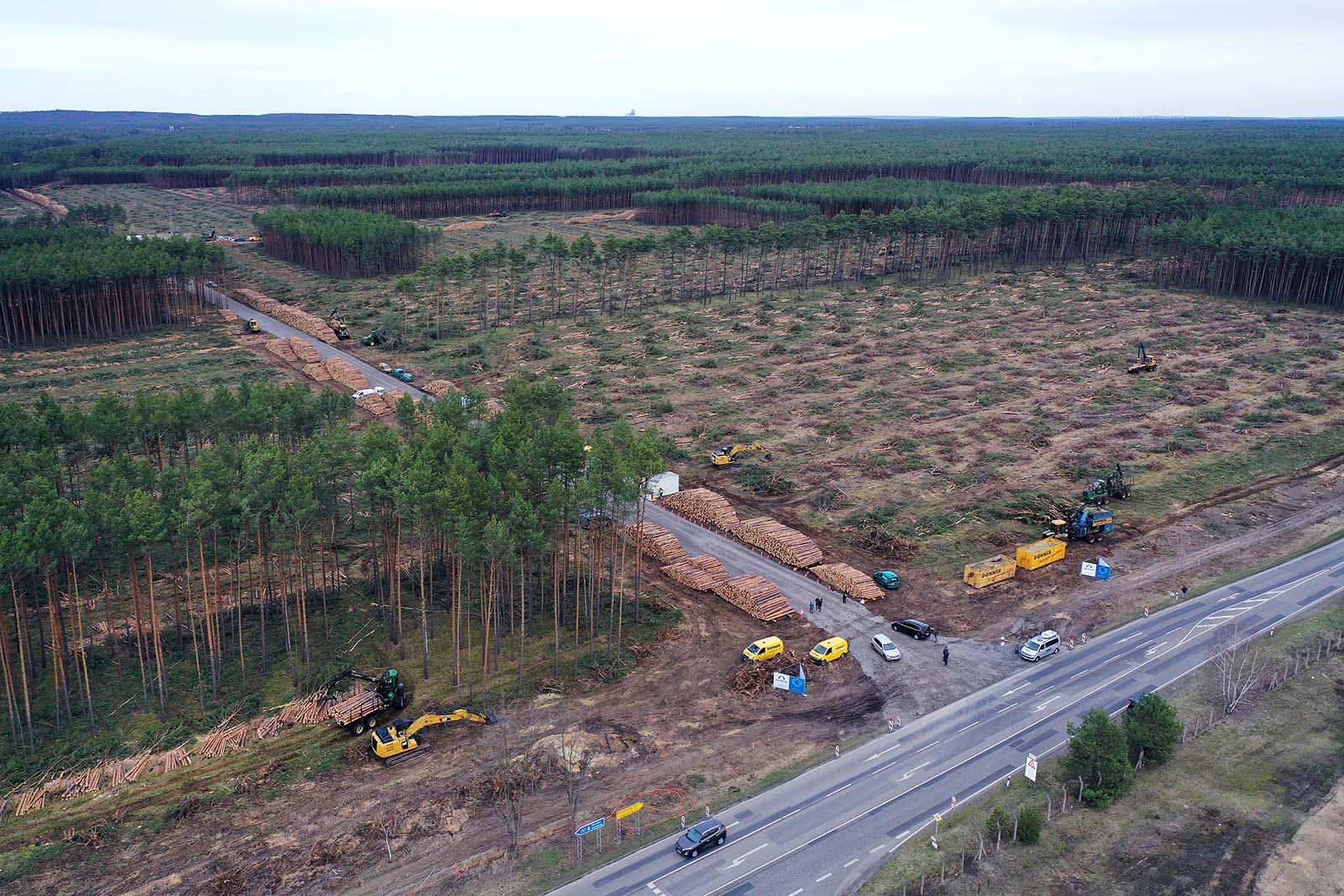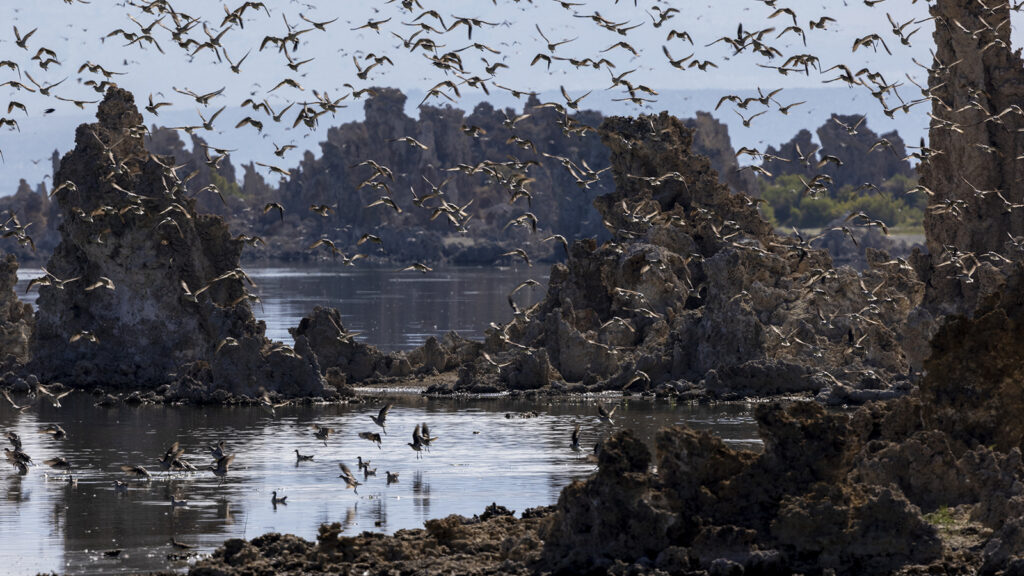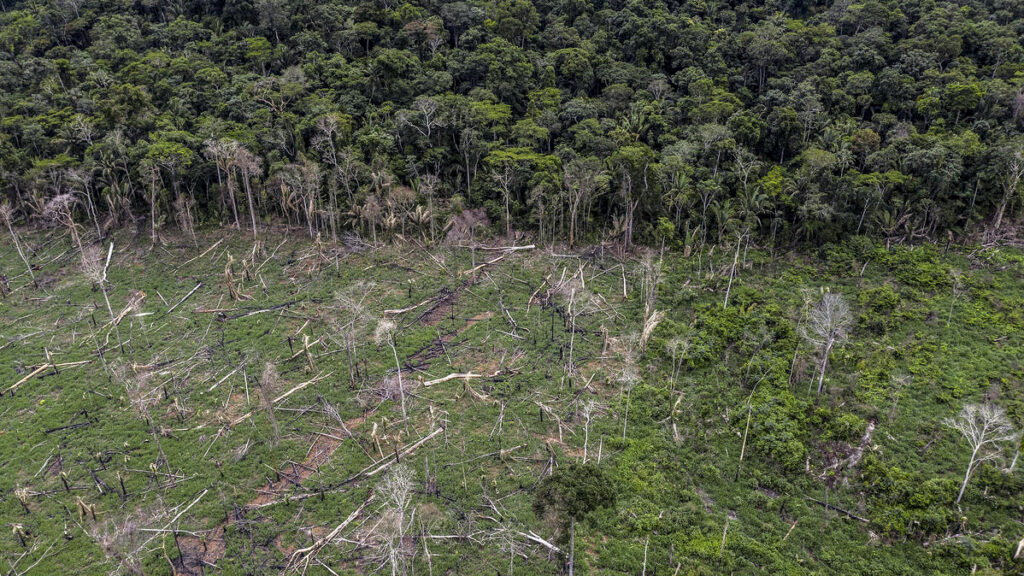The Environmental Warning of the Coronavirus — Why Companies Need to Prepare

It’s essential that companies adopt “science-based targets for nature” that go beyond reducing their carbon emissions—adopting more sustainable production and waste management practices, restore degraded landscapes and seascapes, etc.
Photo: Sean Gallup/Getty Images
The world commemorates the 50th anniversary of Earth Day while still in the midst of an unparalleled public health crisis. COVID-19 has swept across the globe and upended life for billions of people. And yet, in the shadow of this deadly pandemic, Earth Day remains as salient as ever.
COVID-19 jumped from animals to humans and likely originated with unsustainable and unregulated wildlife trade, which is the second-largest driver of biodiversity loss. The catastrophe we now face underscores the extent to which human health and economic prosperity depend upon a healthy natural world, along with the vested interest that business leaders have in helping to build a more sustainable future.
The emergence of viruses like SARS has already demonstrated how high-risk wildlife trade can act as a super-highway for infectious diseases, but it’s not the only potential environmental driver of outbreaks like COVID-19. Rising temperatures and shifting rainfall have fostered the spread of mosquitoes carrying the West Nile virus and Zika. Deforestation and habitat fragmentation have increased the chance of exposure to Ebola, the Nipah virus and Lyme disease, as bats, ticks and other disease vectors come into more frequent contact with people from nearby communities. And as the Arctic Circle warms and melts the permafrost, health impacts remain unknown, and we risk potentially releasing ancient pathogens.
In other words, COVID-19 is a negative environmental impact, akin to toxic pollution, food and water insecurity, extreme weather events and rising seas. And like those other impacts, COVID-19 poses a threat not just to public health, but also economic prosperity.
The good news is that since the first Earth Day in 1970, a growing number of companies have embraced the conservation movement, and not just in a bid to enhance their reputations with the public. Two decades ago, sustainability meant writing checks to worthy causes. Today, savvy business leaders recognize it as an integrated business need.
Companies will have a choice to make in a post-COVID-19 era: Do they return to business as usual, or do they get smart and learn to do more with less?
Part of what’s driving this change is the increasingly painful cost of inaction. The evidence was clear even before COVID-19 effectively paralyzed the global economy. Last year alone, wildfires raged across such far-flung places as California, Australia, Lebanon, Indonesia, the Amazon and the Arctic, wreaking havoc on supply chains, tourism and construction, while also saddling communities with significant health and productivity costs from severe air pollution. But it’s not just a matter of preventing losses. A growing body of research shows that sustainability can actually be profitable. Meta-studies by universities and financial institutions have concluded that companies with comparatively well-managed sustainability practices outperform their peers.
As a result, business leaders are stepping up to be a part of the solution as never before. This is a significant development for global climate action in particular, given that governments and international conventions have thus far failed to deliver the results needed to slow planetary warming. More than 60% of Fortune 100 companies and nearly half of Fortune 500 companies have set climate-related targets. This is a step in the right direction, but we urgently need more companies to go a step further and commit to “science-based targets,” or targets that align with what climate science deems necessary to fulfill the goals of the Paris Agreement. So far, more than 500 companies have made such commitments.
While companies have helped fill the vacuum of international climate leadership, they have been slower to address other critical issues like biodiversity loss. The sum total of benefits that thriving wildlife populations and stable ecosystems provide, from clean air and water to crop pollination and more, is valued at $125 trillion per year. This natural capital is the lifeblood of business. And as the current crisis illustrates, a breakdown in nature can have cataclysmic repercussions for societies and economies around the world.
For this reason, it’s essential that companies adopt “science-based targets for nature” that go beyond reducing their carbon emissions. That means adopting more sustainable production and waste management practices, joining cross-sector partnerships to conserve and restore degraded landscapes and seascapes, and leveraging their considerable influence to urge suppliers and governments to action.
Philipp Hildebrand, vice chairman of BlackRock, recently noted that the COVID-19 pandemic is not an unpredictable “Black Swan,” but rather a “Gray Rhino” — a high-probability, high-impact event that is nevertheless ignored until it is too late. And therein lies the real lesson of Earth Day: It’s not too late to prevent the next potential Gray Rhino event, whether it is an infectious disease, extreme weather event or other environmental shock to the system.
Companies will have a choice to make once COVID-19 is in their rearview mirror: Do they return to business as usual, or do they get smart and learn to do more with less? One path leads to more disasters like the one we now face. The other path leads to a safer, cleaner and more prosperous future — for people and nature.








